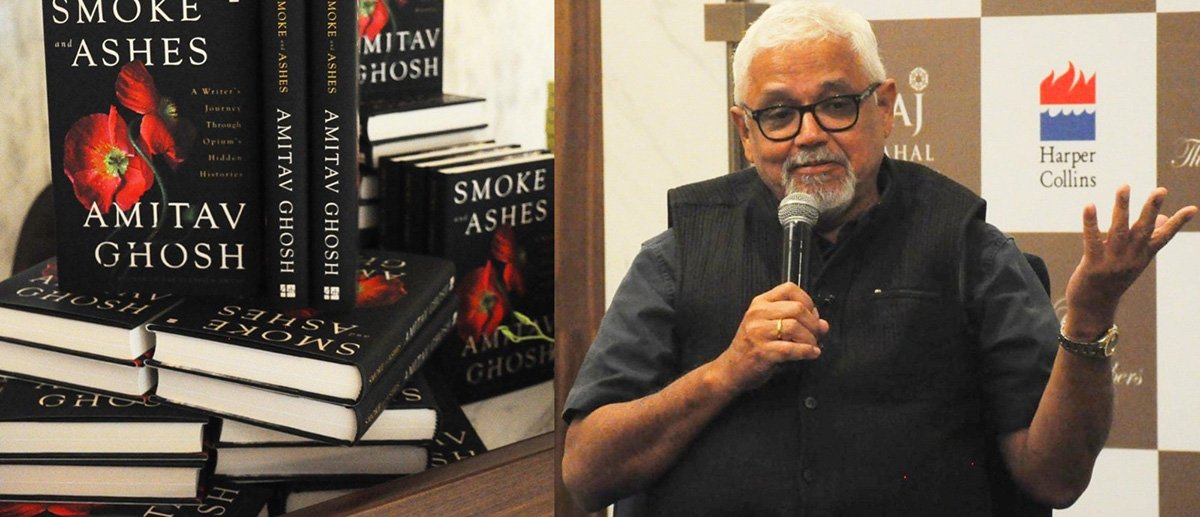
Amitav Ghosh On Opium And American Wealth
NEW DELHI, (IANS) – When Amitav Ghosh, Jnanpith Award-winning writer, was visiting the Low Library in Columbia University, he realized how America, and not Britain alone, was so deeply entrenched in the opium trade imposed upon China in the 19th century, that it owes a part of its wealth at least to the country with which it is no longer in the best of terms.
Abiel Abbot Low, after whom the library was named by his son (the benefactor of the institution), made his enormous wealth from the opium trade, which was engineered by the East India Company to finance its expensive tea imports.
An entrepreneur, businessman, trader, and philanthropist, Low was also one of the biggest opium traders in Canton.
In his book, ‘Smoke and Ashes: A Writer’s Journey Through Opium’s Hidden Histories’ (HarperCollins India), Ghosh has looked back to the days when America was a fledgling republic.
America could not trade in most parts of the world, having been blockaded by the UK in Canada and in most countries across Europe. It was then that China unwittingly became America’s lifeline.
This was a big revelation for those here who have grown up convinced that the British were the principal beneficiaries of this trade, apart from Parsi merchants, who acted as the go-betweens.
“Within months of Britain’s departure from New York, the first major expedition to China set off from New York,” Ghosh recounted. American merchants, he said, went to China and bought tea, which was a trigger of the American War of Independence because the East India Company monopolized the trade. Incidentally, in those years, for Britain, tea was the single largest revenue source, and the Americans were kept out of the business.
During the 20 years he has spent researching the book, while writing his celebrated Ibis Trilogy, Ghosh concluded that opium was at the root of some of the world’s biggest corporations, and several of America’s most powerful families and institutions.
Americans traded tea with silver, which was easily available, but by the mid-18th century, because of the massive global price fluctuations, it became increasingly hard to get silver. The Americans, therefore, faced the same problem the British had, but the British solved their crisis by buying enormous amounts of opium from India.
” America didn’t have that option, so they dealt in ginseng, sandalwood, and sea cucumbers till they discovered opium growing in Turkey,” Ghosh pointed out.
Thereafter, the Chinese not only built the American railroads, which is why several American cities are named Canton but also contributed to building America’s economy. Every single important sector, be it banking, insurance, or education, was built on opium money, according to Ghosh.
Much of the money earned through the opium trade was also spent on philanthropy, and several schools, colleges, libraries, and museums were built by the traders who benefited from the intoxicating poppy.
Ghosh said that the Americans let the opium trade flourish without any ethical constraints despite the Chinese warning them about how their society would be destroyed, which is exactly what happened if they did not regulate the business.
But following in the footsteps of Adam Smith, the Americans, like the British, believed that the laws of the marketplace supersede all other laws. And they happily partook of an entrenched trade that reduced a generation of the Chinese into opium addicts.




